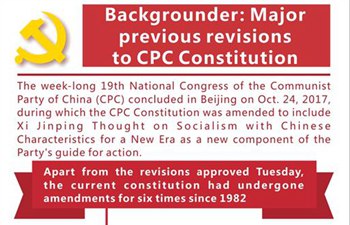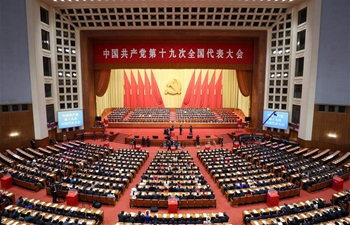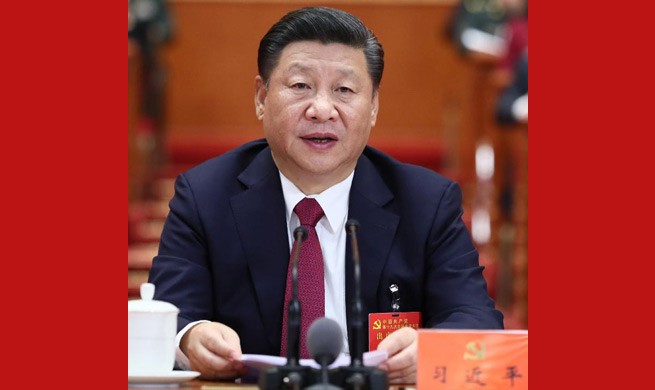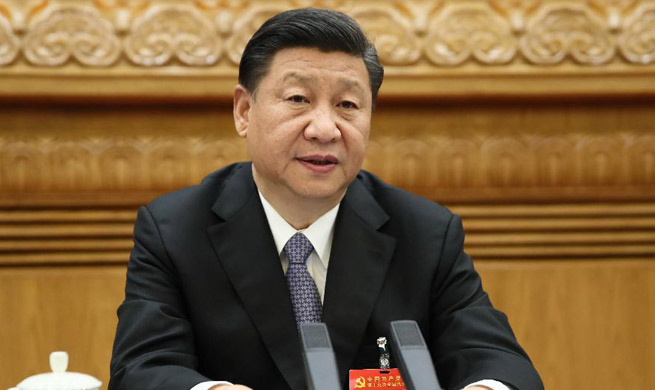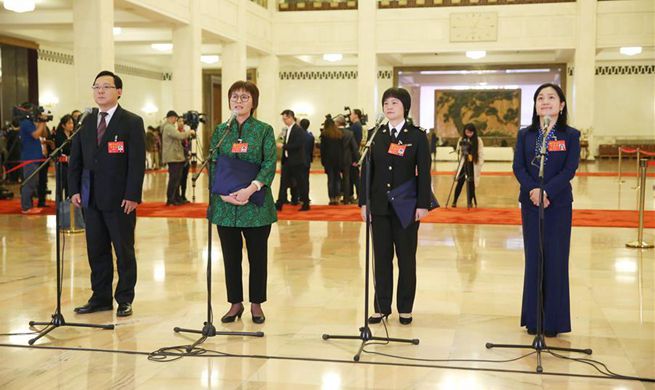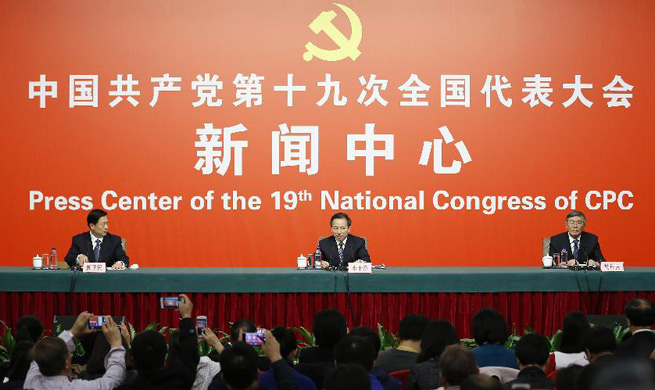PHNOM PENH, Oct. 24 (Xinhua) -- The National Bank of Cambodia (NBC), the country's central bank, has been encouraging businesses and individuals to use renminbi (RMB), or the Chinese yuan, in order to further increase trade and investment volumes between the two countries, officials said on Tuesday.
Seventeen out of 54 banks in the country currently transacted in yuan, and four of them, Bank of China Phnom Penh Branch, Industrial and Commercial Bank of China (ICBC) Phnom Penh Branch, Canadia Bank, and First Commercial Bank, received deposits in yuan, said NBC's deputy governor Neav Chanthana.
"The use of yuan will provide a lot of advantages to Cambodia, especially in attracting more Chinese investors and tourists," she said during a conference here on the Belt and Road Initiative, which was themed Promotion of the Use of RMB and KHR (Cambodian currency riel) in Cross-Border Trade and Investment.
The half-day conference brought together about 200 representatives of banks, financial institutions and companies in Cambodia.
Chanthana said more banks in Cambodia are willing to accept RMB for cross-border settlements.
"The promotion of RMB and KHR is in line with the Cambodian government's policy to support the Belt and Road Initiative," the deputy governor said. "It will increase China and Cambodia's economic and financial linkages."
She added that the Cambodian government has also allowed Chinese tourists to use RMB.
NBC's director-general Chea Serey said the conference was aimed at encouraging companies to settle their business transactions in yuan.
"We want Cambodian and Chinese traders to settle their business transactions in either yuan or riel," she told reporters on the sidelines of the conference. "By doing so, we can reduce or eliminate exchange rate risks for traders."
Pan Hongsheng, deputy secretary-general of the People's Bank of China's Monetary Policy Committee, said, "The status of China as a major trading and investment country and the Belt and Road Initiative will bring broad space and development potential for RMB internationalization."
He added that RMB settlements for overseas financial institutions and enterprises would eliminate exchange rate risks and promote trade and investment ties with China.
Tao Nenghong, deputy general manager of ICBC's international banking department, said since 2009, China has initiated the pilots for RMB settlements in cross-border trade and investment, and ASEAN was the first region to carry out RMB cross-border settlements.
"Cambodia has also been using RMB in trade settlement, clearing, remittance, deposit and other businesses," he said. "Direct convertibility between RMB and KHR will further help market players to hedge foreign exchange rate risks and lower transaction costs."
Lim Heng, vice president of Cambodia Chamber of Commerce, said since trade, investment and tourism ties between Cambodia and China have become bigger, the promotion of the use of RMB and KHR was very important. "On behalf of the private sector, I support this project because we don't want the only option, the U.S. dollar, to settle cross-border business transactions. We want many options," he said.




